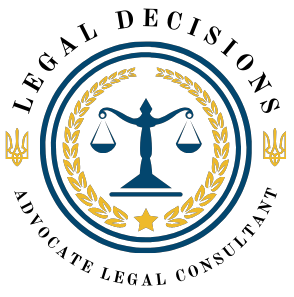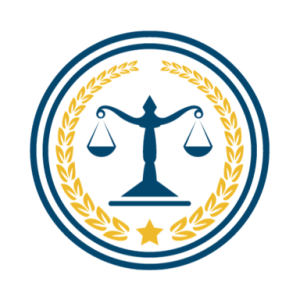Protection in criminal cases

Pursuant to Article 132-2 of the Constitution and Article 10(3) of the Law "On the Judicial System and Status of Judges", the provision of official legal aid in criminal cases is the exclusive competence of lawyers. The legal status of advocates, including their rights and obligations, is defined by the Law on the Bar and Practice of Law, the Criminal Procedure Code and other legislative acts.
In the course of their professional activities, each representative of this category must adhere to the following principles:
- Regulate their actions in accordance with the Rules of Professional Conduct.
- Strictly adhere to the principles of legality, rule of law, independence and confidentiality.
- Avoid situations of conflict of interest.
- Exercise its powers only within the framework set forth in the contract.
- Do not violate the restrictions imposed by the client, in particular, regarding certain procedural actions.
The role of a lawyer in criminal proceedings is important and multifaceted.
The main aspects of his functions include:
-
Protection of the rights and interests of a suspect or accused
A lawyer acts as a defense counsel for a person who is suspected or accused of committing a crime.
Ensures the principle of presumption of innocence, helping the client to avoid unjustified accusations. -
Providing legal advice
Answers clients' questions, explains their rights and obligations, and informs them of the possible consequences of various actions.
-
Representation of interests during interrogations and investigative actions
Protects the client's interests during investigative actions and interrogations, preventing possible misconduct.
-
Participation in court hearings
Represents the client's interests at court hearings, argues the defense position before the court.
-
Preparation of evidence and argumentation
Collects and analyzes evidence, develops a defense strategy, and presents arguments in court.
-
Participation in the process of concluding peace agreements
Interacts with the prosecutor and other parties to reach settlement agreements and avoid litigation.
-
Protection during the decision on preventive measures
Acts for the client when considering the application of preventive measures.
A lawyer, using the above methods, performs the following main tasks:
Protection of legitimate interests
Mediation with the law enforcement system
Interaction with institutions and individuals
Legal support
Performing these functions allows the lawyer to effectively protect the interests of his client, ensuring justice and compliance with the law at all stages of the offense.
Rights of a lawyer in criminal proceedings
When a lawyer acts as a defense counsel, he or she also enjoys the procedural rights of the client, such as the possibility of holding confidential meetings, participating in investigative actions, reading and signing protocols, filing challenges, protests, petitions and complaints. Defense counsel’s documents are not subject to inspection, seizure or disclosure by law enforcement or judicial officials.
A lawyer, while practicing law in criminal proceedings, enjoys various rights, including:
Submitting lawyer requests and receiving information
The advocate has the right to submit inquiries to any bodies, institutions, organizations, as well as to individuals (with their consent) and to receive copies of documents.
View official materials
May review official papers and materials related to the criminal case, except for those containing classified information.
Representation of interests before various authorities
He has the right to represent clients and defendants before the state, local governments, officials, legal entities, citizens and in court.
Drafting procedural and other legal documents
May draw up procedural and other legal documents and submit them to the relevant authorities in accordance with the law.
The right to collect evidence
It has the ability to collect facts, things, and documents that can be used as evidence.
Participation in court hearings
They can be present during the consideration of their appeals, testify, interview witnesses and other participants in the process.
Recording of procedural actions
He has the right to record procedural actions and the course of court hearings using audio and video equipment, as well as to copy case files.
Other powers of authority
Obtaining official expert opinions, certifying copies of documents (except for those requiring notarization).
Duties of a lawyer in criminal proceedings
An attorney-at-law in criminal proceedings has a number of responsibilities that guarantee the effective performance of his or her functions. According to the current legislation of Ukraine (Article 21 of the Law No. 5076-VI and Article 47 of the CPC), the duties of an advocate include:
Compliance with the rules of professional ethics
The lawyer shall adhere to the norms of professional ethics, which ensures a high standard of behavior and trust.
Reporting to the client
He/she must report on the progress of fulfillment of the contract at the client's request.
Disclosure of conflicts of interest
Immediately notify the client when a conflict of interest arises.
Execution of decisions of the bar self-government bodies
The advocate shall be obliged to comply with the decisions made by the bar self-government bodies.
Personal data storage
It should ensure reliable storage of personal data and other confidential information.
Protection of the client's interests
To use the mechanisms and means provided by law to ensure the freedoms, interests and rights of the suspect or accused.
Examining the circumstances of the case
Find out the circumstances that refute the client's guilt and may mitigate or exclude his or her liability.
Participation in procedural actions
Participate in all procedural actions in relation to the client, notify the investigator, prosecutor, and judge of your absence and the reasons for it.
Preservation of attorney-client privilege
To keep the lawyer's or other legally protected secrets and not to disclose the information received without the client's permission.
Restrictions on abuse of power
It is forbidden to abuse your authority, use information for personal purposes or in the interests of third parties.
Refusal to provide legal assistance
It is forbidden to refuse to provide legal aid without reason.
These responsibilities ensure a high standard of legal assistance and trust in the criminal process.
Do you have any questions?
Call us now and get answers to all your questions!
+38 050 698-15-21+38 063 803-90-83